#decade: 1840s
Explore tagged Tumblr posts
Text
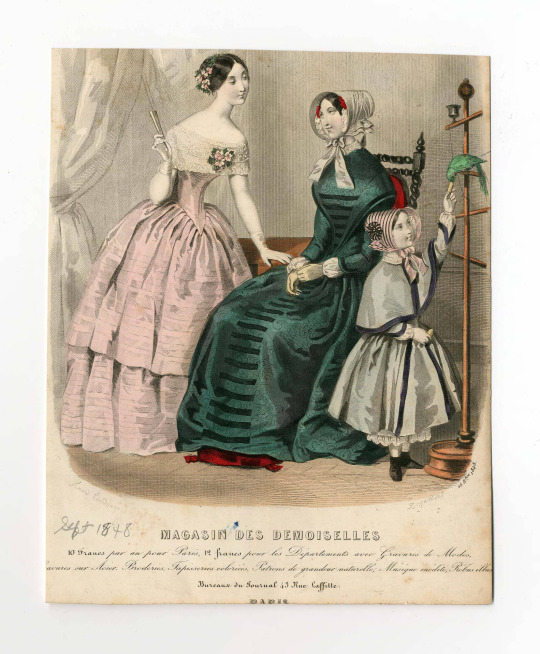
Evening and Day Dress for Women and Girls, September 1848.
#fashion plates#historical fashion#clothing#women's fashion#colour illustration#dress#19th century#century: 1800s#nationality: french#pink#blue#teal#green#grey#gray#evening dress#evening gown#ball gown#day dress#gown#children's fashion#month: september#year: 1848#decade: 1840s#publication: journal des demoiselles#era: second republic
47 notes
·
View notes
Text

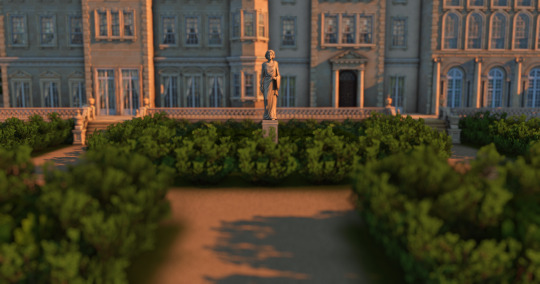
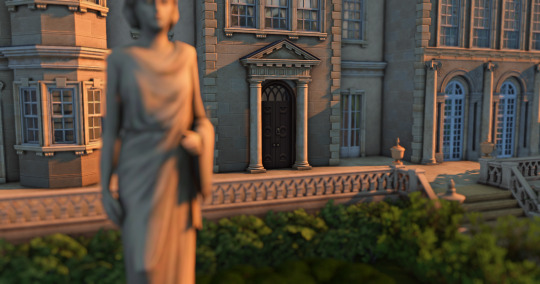
1850s english manor - historically accurate

Hi! Here's the build I've been working on for the past two weeks. I've made plenty of homes for working-class and somewhat well-off folks, but I hadn't shared a mansion yet, so I was really excited to get this one done. It took me a lot of effort, and I had to cut back on the CC usage and simplify the interiors so Tray Importer wouldn’t crash when exporting the CC.
Anyway! This grand house features a beautiful garden, an entrance hall worthy of a mansion, and a library-living room that leads to the drawing room and dining room.
There are two full floors of bedrooms and bathrooms. The master bedroom is on the top floor and is split into two with a small hallway in between, so the lords of the house can sleep in their respective beds as tradition demands.
There’s also a nursery and a room for toddlers. The mansion boasts a large greenhouse and a full floor dedicated to the staff, where you'll find the kitchens and the servants’ quarters.

Lot details
64x64
§1.228,338 💀
CC included in the download folder.

the interior:
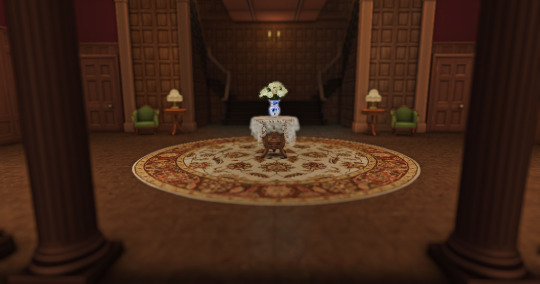
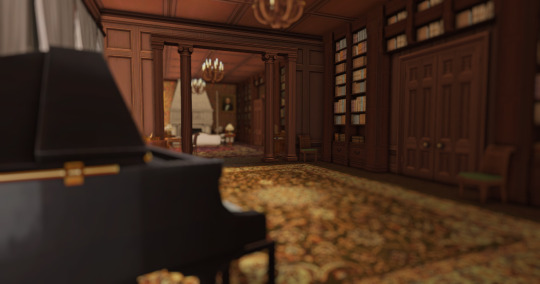
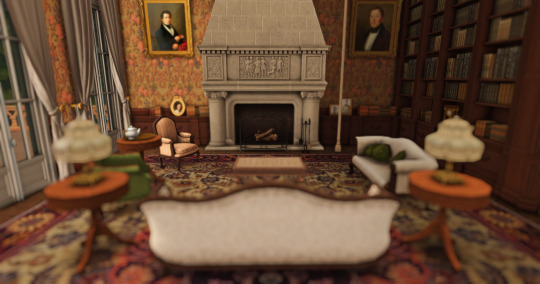
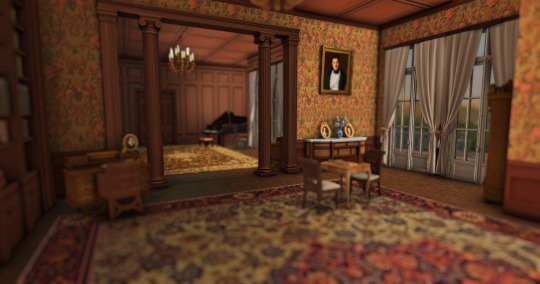
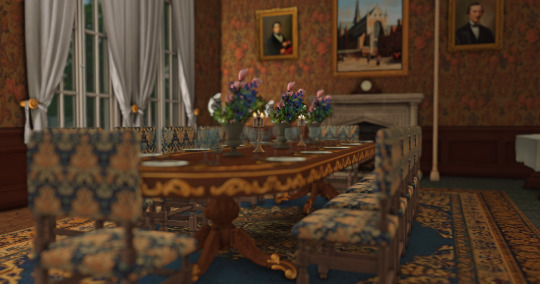
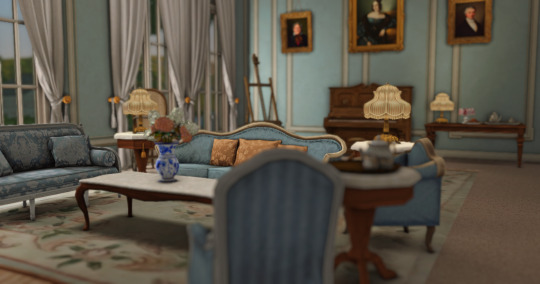
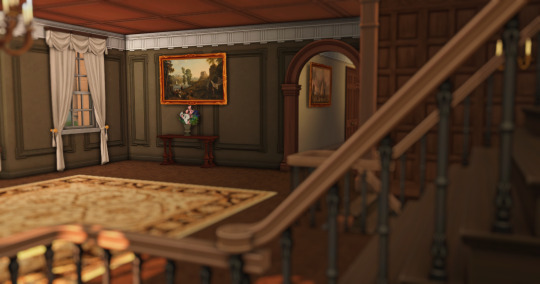


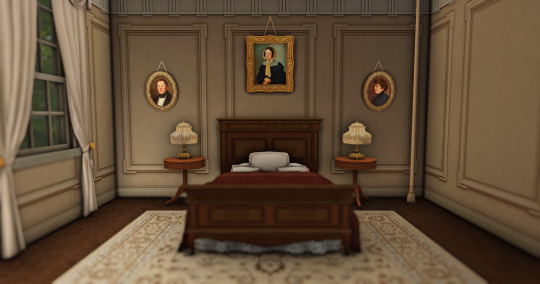
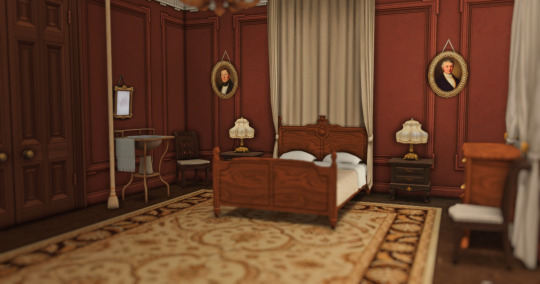
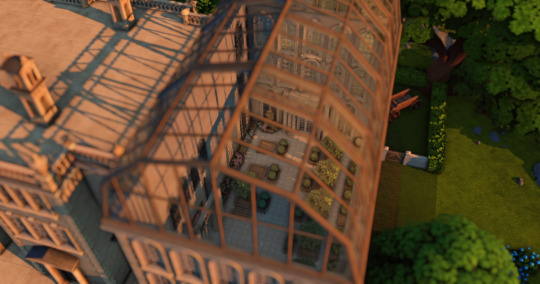
master bedroom(s);
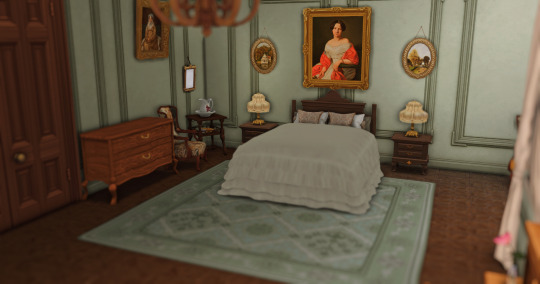
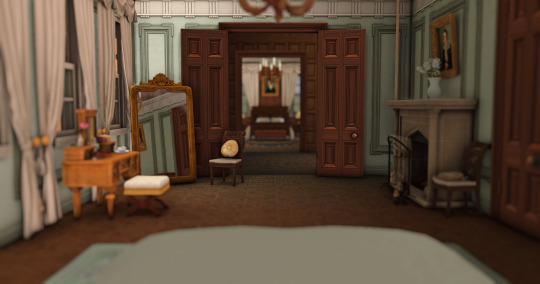
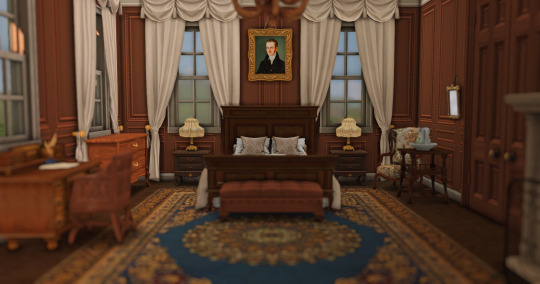
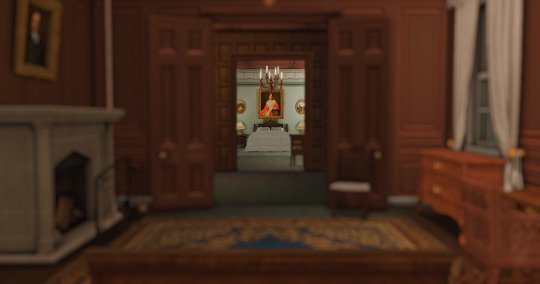
nursery and toddler's room;
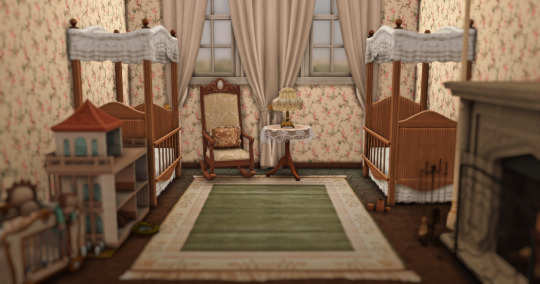
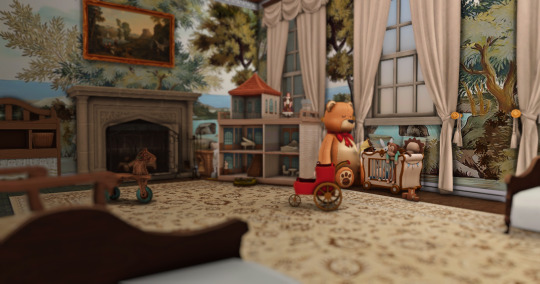

floorplans;
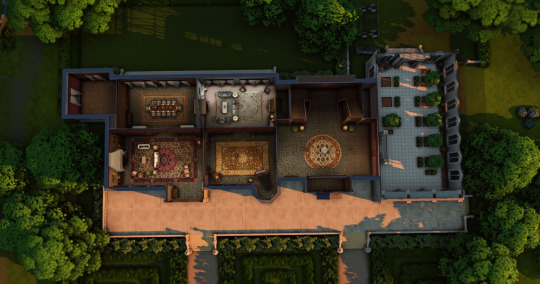
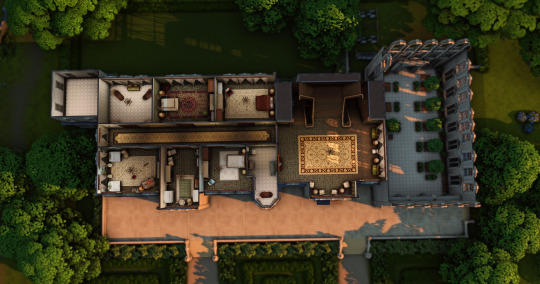

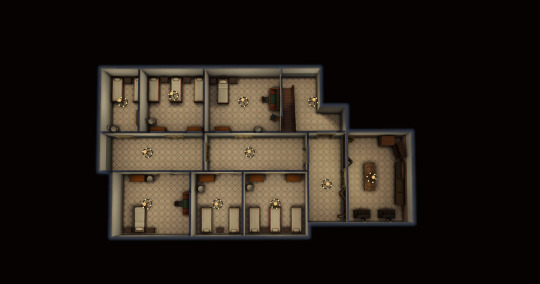

download (FREE on Google Drive)
#sims 4#ts4#ts4 historical#ts4 build#sims 4 build#ts4 victorian#ts4 1850s#1850s#1840s#sims 4 decades challenge#ts4 decades challenge#ts4 cc#pejite builds
428 notes
·
View notes
Text

How the doose does he manage it?
#miwackulous tye monday#art tag#men’s fashion#1840s men’s fashion#I think#I’m not good with this decade
226 notes
·
View notes
Text
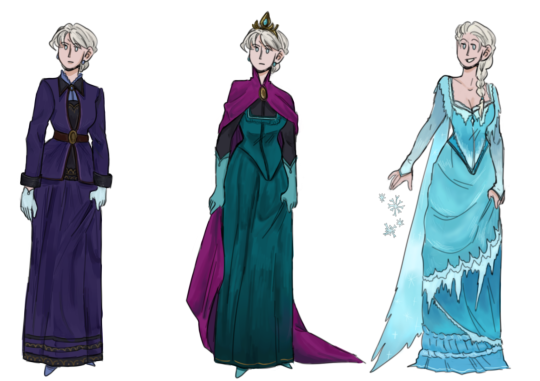
So back to my "semi historically accurate disney princessess" we have elsa!
#art#fanart#digital art#disney fanart#historically accurate disney princess#1878#late 1870s#victorian fashion#frozen elsa#frozen#queen elsa#victorian frozen#i thought about doing other decades for this#like 1840s or 1850s#but the late 70s or early 1880s just fit you know#anyways#doing anna next
188 notes
·
View notes
Text
they were born in the same litter but separated at the puppy mill😭😭


219 notes
·
View notes
Text
1840s dresses were a real moment




look at the material!!
#idk how many people like the fashion of this decade but i love it#1840s#1840s fashion#19th century#19th century fashion
183 notes
·
View notes
Text

Thomas Couture (1815-1879) "The Romans in their Decadence" (1847) Oil on canvas Located in the Musée d'Orsay, Paris, France
#paintings#art#artwork#history painting#ancient rome#thomas couture#oil on canvas#fine art#musee d'orsay#museum#art gallery#french artist#ancient romans#decadence#decadent#indulgence#costume#costumes#1840s#mid 1800s#mid 19th century#aesthetic#aesthetics
248 notes
·
View notes
Text

Two men reading Le Charivari by Honoré Daumier, 1840.
Happy Eighteen-Forties Friday, my friends!
#Eighteen-Forties Friday#1840s#honoré daumier#le charivari#monarchie de juillet#early victorian era#huge newspaper comics decade
40 notes
·
View notes
Text
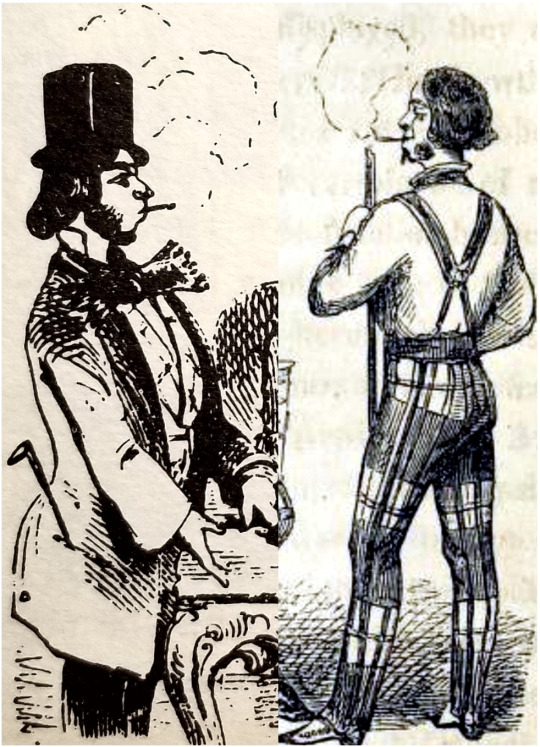
Rating: NOT CUTE.
The vogue in 1840s men, incorrectly believed to be docile and low-maintenance, has led to many scenes like this. Even worse, some will indulge this behaviour, as though all that plaid-clad cake couldn't do wrong!
These 1840s men need immediate intervention with a book of etiquette: direct his attention to a chapter on the evils of tobacco, a crass and low habit. Giving your 1840s man the fringed joinville necktie or silly little walking stick he desires is harmless; his constant smoking is not!
Never be seen in cigar divans or billiard rooms; they are frequented, at best, by an equivocal set. Nothing good can be gained there; and a man loses his respectability by being seen entering or coming out of such places.
— Etiquette; or, A guide to the usages of society, with a glance at bad habits (1843)
#is the 19th century man okay#mid 19th century#not cute#1840s#smoking#etiquette#resources#two illustrations from 1840s books by albert r. smith#dissipation and decadence
57 notes
·
View notes
Text
i know some people are mad at how most productions and most adaptions of the string of pearls/s.weeney t.odd story take place in victorian england instead of the late eighteenth century like how the penny dreadful was set, but i really appreciate how they go with the earlier victorian period rather than later? most other gothic stories take place in the late eighteen hundreds for the vibes and fashion and history and etc. despite the victorian setting, it still stands out.
#now the costume designers don't understand that victorian fashion fluctuated quite a bit throughout the decades and years#but that's a conversation for a different time#i would love to see johanna in a proper 1840s dress#they fit her vibe better than whatever the heck they usually put her in#more modest and simple and plain#that's probably how turpin would dress her#*❈ ‣ i’m a silly little ninnynoodle — ( ooc. )#tbd.
6 notes
·
View notes
Text
Ah, yes! This is VERY 1850s in my opinion! The rounded softness of the silhouette, the sheer WIDTH of those ruffled sleeves, the hair... Yes! She is SO lovely!

• Unidentified Young African American Woman, front view.
Photographer: Thomas M. Easterly
Medium: Daguerreotype
#Fashion history#Lovely lovely! 🥺😍#It was my actual JOB to portray life in the 1850s for several years!#So I have a special affection for the decade. 🥰 (And a lot of research ha!)#You'll notice 'soft' and 'wide' as general characteristics haha!#Especially compared to the decades sandwiching it on either side which were more tailored#The 1840s being tailored and slim#And the 1860s being tailored and WIDE. Haha!
4K notes
·
View notes
Text

"Fashions for April 1843"
#historical fashion#women's fashion#fashion plates#year: 1843#decade: 1840s#month: april#century: 1800s#19th century#era: victorian#era: jacksonian#era: july monarchy#dress#gown#clothing#blue#green#yellow#pink#colour illustration
16 notes
·
View notes
Text


An 1840s Lookbook ; Wilhelmina Langley
This is my first lookbook! I’ll start making them for each decade, but instead of starting with the 1830s, I’m going with the 1840s since there’s more CC available, and by the time I thought of doing it, the 1830s had already passed.
In this case, Wilhelmina doesn’t have a party outfit or swimwear since she’s never had the opportunity to wear something like that.
Everyday / hair / dress / shoes
Everyday / hair / dress / apron / shoes
Going out or Formal / hair / hat / dress / shoes / socks
Mourning / hair / hat / dress / shoes / basegame gloves
Sleepwear / hair / dress / socks
Underwear / hair / dress / socks
Hot Weather / hair / hat / dress / shoes
Cold Weather 1 / hair / dress / shoes / socks
Cold Weather 2 / hair / hat / coat / skirt / shoes / socks / basegame gloves
#langley extras#wilhelmina langley extras#lookbook#ts4 lookbook#sims 4 decades challenge#ts4 decades challenge#sims 4#ts4#sims 4 legacy#ts4 historical#ts4 cc#1840s#maxis match cc#langley lookbooks
143 notes
·
View notes
Note
Hello, I have a question about fashion history.
Before I transitioned, I dressed 1850/1860s every day (with the accasional 1960s because miniskirts used to be fun before dysphoria took me hostage)
Currently my style is just misc vintage menswear, and despite all I look for in my fashion history books (the ones I use for my university costume course) I cannot figure out a way to make it more specific to certain era, other than with neck wear (but then you put a tie on and it could be any point in history again!)
What are some markers of specific periods in male historical fashion or what could I read to find out about them?
Ignore accessories right now and concentrate on fit and silhouette.
There is a world of difference between, say, 1840s and 1950s tailoring, even though men have been wearing suits & ties for ages now.
Look at these 2 fashion plates that were contemporary to the decades I just mentioned. Soft hourglass shape vs a sharp-edged wedge.


What I suggest is focusing on whatever era(s) you like best and picking apart the silhouette. Ask yourself things like:
How is this silhouette different from other eras?
Are the garments fitted or loose?
Where do pieces, like trousers, sit on the body?
How does the cut of the clothing influence the wearer's posture?
How does the fit of the clothing alter the wearers shape? What does it hide or change? What does it exaggerate?
What is it about a garment's construction that allows it to achieve these shapes? Pleats, darts, shaping via ironing, hidden structure/padding, etc?
Once you dial in the silhouette, you can then layer on details. But the silhouette is key to looking & feeling authentic!
523 notes
·
View notes
Note
Do you need a sewing machine to start making shirts and vests? Is hand sewing an option worth considering, or should I invest in a machine, in your opinion?
That's really a matter of personal preference!
Do you need a machine? Absolutely not! Every garment ever made before the 1840's was sewn by hand, and a lot of them after that too. I've sewn many garments completely by hand, including the early 18th century tiddy-out-violinist shirt, these bright orange breeches, and this green waistcoat.
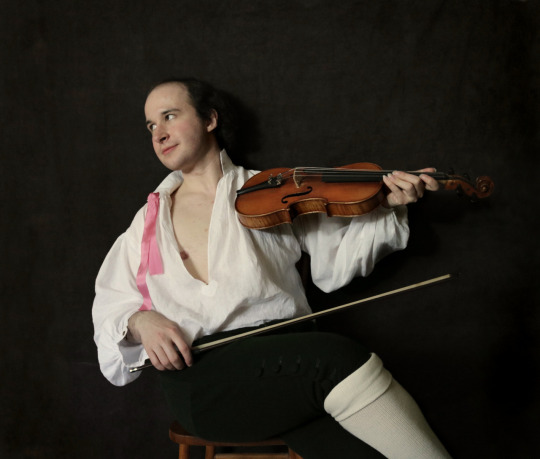
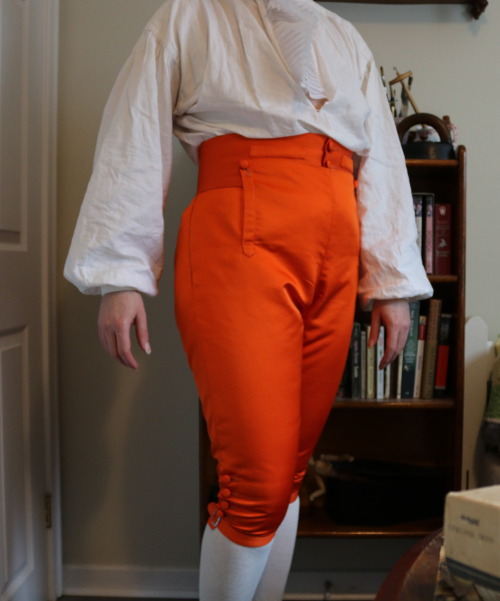
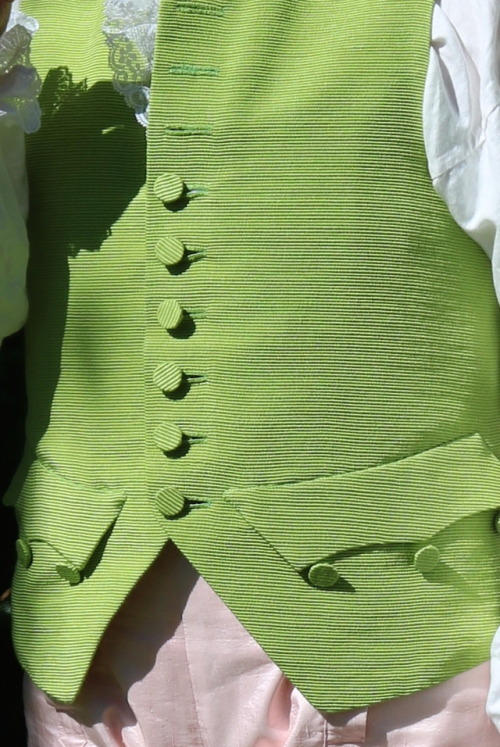
Is it nice to have a machine? I think so, but again, individual opinions vary!
One of the costumers I follow sews everything 100% by hand because she finds it meditative and isn't interested in using a machine at all. Some people hate hand sewing and prefer to do everything by machine, with maybe a bit of hand finishing if they absolutely can't avoid it.
I do about a 50/50 split overall, maybe skewing a bit more towards hand sewing. I like to do pants, shirts, and nightgowns mostly by machine with some hand finishing, but for jackets and waistcoats I usually do considerably more hand sewing than machine, because I like 18th century tailoring techniques and think they give a nicer looking result. I do most of my buttonholes by hand, or I do them by machine first and then cover them in hand stitching.
Most people who sew do at least some of it by machine, but again, I don't know which way you prefer to work, so I'd suggest trying out both to see how you feel abut them.
For hand sewing, I suspect a lot of people hate it because they're using shitty needles and/or shitty thread, and perhaps haven't found good resources for hand sewing techniques.
Here's a post of hand sewing advice that I found quite helpful a decade ago. Use good needles because the eyes of the cheap ones have jagged edges and will ruin your thread! Use nice thread because the wrong kind will be twisty and tangly and will fray more!
Thimbles are good and useful, and typically they go on the middle finger of your dominant hand, and you use them to push the needle. I prefer metal thimbles and dislike using leather ones, but some people prefer the leather ones, or rubber ones.
The metal ones come in sizes, and I don't know how to find out your size aside from trying them on in person, but I know I'm a size 11.
One very important thing is that if you're hand sewing a garment, look for hand sewing specific instructions on how to do the construction techniques you're going for. A lot of the time when someone nowadays is trying to figure out how to hand sew a thing they'll just try and copy the machine sewn version, and a lot of the time that's inefficient and more difficult and the result looks worse, because machines and hands work very differently!
This is something I'm going to briefly discuss in the outro to the very long shirt video I'm working on, because it's so very common, and I've done it too! On several of my earlier hand sewn shirts I didn't know to turn the edge in on the front slit and do a little narrow hem, so I instead sewed on a facing for the front slit and cut and turned it, just like I'd seen on machine sewn shirts. This made it about 3x more time consuming, and the result was much bulkier and looked worse.
I've got so many more things to say about sewing but it's almost bedtime and I don't want to make this post too long.
For machine sewing, again there's a lot of personal choice. Some people like newer machines, some people like vintage or antique ones. I'm one of the ones who prefers solid metal vintage machines. I grew up using an old cast iron Singer, and the newer domestic machines just feel so plasticy and insubstantial to me. I'm used to ones that just do straight stitch and can also go backwards, but some people are perfectly happy with ones that can't even backstitch.
I do think that for a beginner the vintage machines are a better deal, because if you're patient and look around for a while you can snag one for really cheap at a thrift store, yard sale, facebook marketplace, etc. Also they're mostly metal and therefore harder to break.
I recently got a Pfaff (from I think the 1960's?) at an estate sale for 25 bucks. The zig zag mechanism is stuck and needs fixing, but I cleaned & oiled it up and it works just fine for regular straight stitching.
There are SO MANY online resources for how to clean, oil, and fix vintage sewing machines, especially the more popular brands, and a lot of the time cleaning & oiling is all they need. Read the manual and get an oil bottle with a nice long pointy thing so you can reach all the parts, and get some compressed air to whoosh out the fuzz. If it's old and hasn't been used in years, turn the hand wheel and observe every single place where metal rubs against metal, and Make It Greasy There.
(If you don't have the manual, you can often find those online too. I even found the service manual for my new-old Pfaff! I have the original users manual, but this one's for the people doing repairs.)
Oh this post is getting much too long! If you don't know yet if you like machine sewing, try seeing if you can use one without owning it, perhaps at a sewing class or in a makerspace. I know some libraries can loan out machines. A sewing class would probably be a good idea actually, if there are any available where you live!
Much like how you'll have a bad time hand sewing if you've got shitty supplies and no proper instructions on good techniques, you'll have a bad time machine sewing if it's not oiled well and if the tension is uneven.
There are so so very many things to learn about sewing and I hope I'm not making it sound too overwhelming, because I promise it's not if you take it one step at a time!
Also, when someone who's been sewing for a long time says "You may think you can ignore (piece of sewing advice), but actually that's bad and you will regret it", they're usually right. Oh, how I regret not learning to use a thimble years earlier than I did...
Sorry this post is so long, I hope it's helpful!
Basically, there's no one best way to sew anything, and you should try different stuff and see what works best for you, because everyone has different preferences.
551 notes
·
View notes
Text
Julie - 1840s day dress

Surprise! 3-5 outfits in 4 days? You betcha! I'm unemployed.
This is more late 1840s than early 1840s. Could work for early 1850s, even. Named after a somewhat niche opera character. I think she'd like this dress.
It's nothing fancy. 6 packages, 2 meshes, 150 swatches, 2 color overlays. I did some math and there should be 307,200 combinations. Can't guarantee my math is correct though.
As a whole this set is about 35 MB. Not bad!
AF Dress


BGC
Plain+Stripes: 60 swatches
Patterns: 90 swatches
Tagged as feminine
Found in the Long Dresses category
Polycount: 6494
Display index by decade
Disabled for random
TF Dress


Shorter variant for teens
AF version is required!*
Plain+Stripes: 60 swatches
Patterns: 90 swatches
Tagged as feminine
Found in the Short Dresses category
Polycount: 6530
Display index by decade
Disabled for random
Overlay A
Swatch overlay for the collar and undersleeves
32 swatches
Found in the Necklaces category
Overlay B
Swatch overlay for the lace on the outer sleeve
32 swatches
Found in the Bracelets category
*Both TF versions require their adult equivalents to work. If you want the plain TF dress, you need to download the plain AF dress, and if you want the patterned TF dress, you need the patterned AF dress. This was done to reduce file size. The adult versions still work independently.
Download (Patreon)
My TOU
#my cc#af cc#ts4 1840s#ts4 1850s#19c#ts4 historical#ts4 victorian#historical cc#sims 4 historical#ts4cc#ts4 cc#sims 4 custom content#the sims 4#ts4#sims 4 cc#sims 4#fullbody#i did 90% of the work on this set yesterday while drunk + pulling an all-nighter#i then slept until 6 in the evening. fair
141 notes
·
View notes